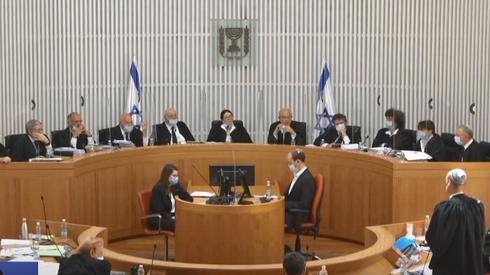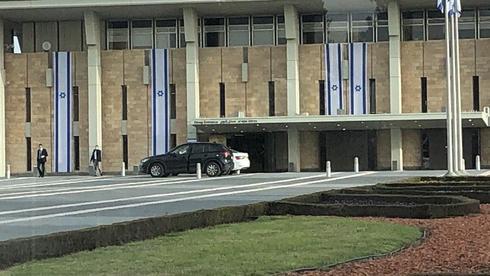Opinion: Supreme Court believes the decision to remove an indicted elected official cannot be left in the hands of Knesset which may not factor in public norms and perceptions to its considerations
Both sides of the political spectrum make the same argument: we are facing an apocalypse.
Pundits both on the left and on the right are convinced the expected ruling by the High Court will mark the end of democracy. The right will claim it if the court bans Prime Minister Benjamin Netanyahu from forming a government, while the left will make the same claim if the court chooses not to intervene.

You don’t have to be an avid right-wing supporter to see that blocking Netanyahu would not bode the end of time, it would simply be in contradiction to the law.
During two days of hearings on Sunday and Monday this week, the question of the legality of a criminally indicted candidate to assume office was discussed Ad nauseam.
A Supreme Court ruling to that effect was handed down in 1993 after Shas leader then, and now, Aryeh Deri was indicted among other things, for receiving bribes and his fellow party member Raphael Pinchasi, was indicted for fraud. The ruling stated that the prime minister must fire a minister or a deputy minister under indictment because of the adverse effect on public confidence in the government.
In 2001 the Knesset passed legislation granting sole discretion to remove an indicted member, to the Knesset, and only after all legal proceedings were over.

In the eyes of the High Court, the decision to remove an elected leader from office, cannot remain in the hands of the Knesset. It must consider societal conventions and norms and not just the letter of the law.
Still, the law was changed and the question of the courts’ jurisdiction in the matter is the focus of the political argument made for and against it.
Past events have raised concern that the Supreme Court may try to invalidate the position of the elected representatives of the public and grant a tribunal of judges a final say relying on what they call judicial discretion.
But what makes their discretion any more valid than that of the members of Knesset?
Israeli reality in the past decades has been that prime ministers were being investigated for suspected crimes lending to concerns that politicians are often over scrutinized by law enforcement and at least some investigations may have been politically motivated.
As clever and esteemed as the Judges on the High Court are, they have demonstrated an overly activist tendency that may result in harsh legislation aimed at reducing their jurisdiction and be harmful to Israel’s democracy and rule of law and create more harm than good.
As reported by Ynetnews
